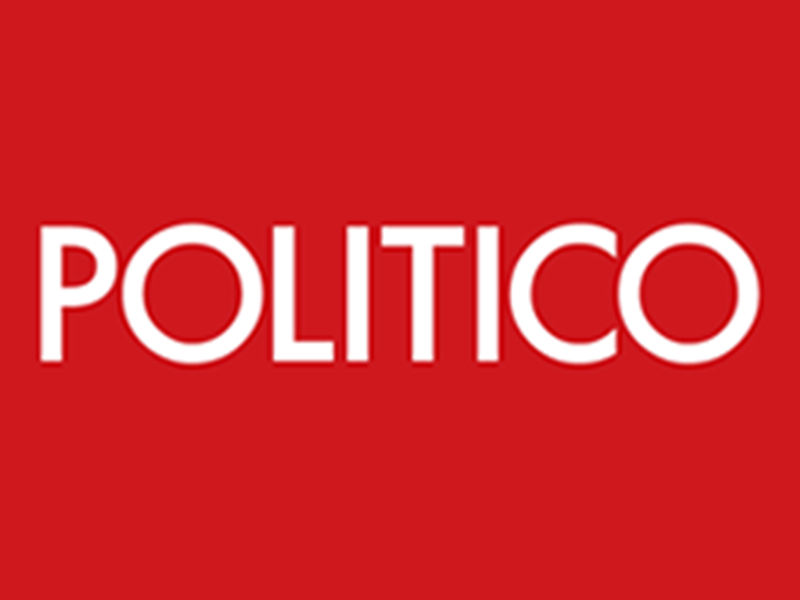2023

Netflix, Disney Ask Canada Appeal Court to Stop Proposed Tax on Streaming Revenue
Netflix, Walt Disney, and other U.S. streaming companies have asked a Canadian court to stop plans by authorities to force them to fork over 5% of their sales in the country to finance local broadcast news and other domestic content.

Still No Easy Digital Tax Answers for Developing Countries
Nana Ama Sarfo reviews the latest research commissioned by the South Centre, African Union, African Tax Administration Forum, and West African Tax Administration Forum into the amount of revenue developing countries might raise from amount A versus a digital services tax.

Hungarian Prime Minister Calls Pillar 2 ‘Catastrophic Failure’
Introducing a global minimum tax rate for the largest multinational enterprises is a “catastrophic failure” because it burdens businesses and dampens EU competitiveness, according to Hungarian Prime Minister Viktor Orbán.

OECD Tax Chief Still Optimistic After Missed Pillar 1 Deadline
The end-of-June deadline for countries to conclude pillar 1 tax reform negotiations has come and gone, but delegates are still making good headway toward a final agreement, the OECD’s tax director said.

India, United States Confirm Digital Tax Compromise Extension
India has joined the group of countries that have extended the “unilateral measures compromise” with the United States that outlines a transitional approach to their digital services taxes before pillar 1 rules are implemented.

Canada’s Enactment of Pillar 2 — Part I
Nathan Boidman, Michael N. Kandev, and Marc André Gaudreau Duval, in the first installment of a two-part analysis, provide an overview of, and context for, the Global Minimum Tax Act — legislation now moving through Canada’s Parliament to implement pillar 2. Part two will more closely examine certain aspects of the legislation with a focus on provisions that yield interpretational issues or deal with antiavoidance.

U.N. Makes Progress Toward a Framework Convention on International Tax Cooperation
Hafiz Choudhury explains efforts at the U.N. to foster an international taxation cooperation process more inclusive of developing countries. The opinions expressed in this article are solely those of the author and do not reflect the views of any other person or organization, in particular the U.N.

Virtual Permanent Establishment — A New Nexus to Tax?
Aditi Goyal and Kanupriya Sharma explore the concept of “virtual permanent establishment” as a framework for taxation in an increasingly digital world, using the Clifford Chance case in India as a primary example.

EU Tax Chief Urges Rich Countries to Participate in U.N. Process
High-income countries should engage constructively in U.N. discussions to develop a framework convention on international tax cooperation or risk a global spread of tension in tax policymaking, a top EU tax official said.

US Unwilling to Compromise on Key Provision of Global Tax Deal, Treasury Official Says
The U.S. is set on making Amount B, which deals with companies’ marketing and distribution activities, mandatory even as several other countries are pushing to make it optional.

Countries’ Differing Court Remedies Present Harmonization Challenges
Policymakers have spent more than a decade crafting an international consensus on the allocation of corporate tax revenue, but the scattered landscape for settling tax cases could undermine the goal of a smoothly operating system.

Supreme Court Upholds 2017 Tax on Foreign Investments
The court rejected a challenge from conservative activists to a one-time tax on certain foreign investments but left unresolved questions about whether some leading Democratic revenue-raising ideas are constitutional.

Digital Barter Taxes: A Legal Defense
Young Ran (Christine) Kim with Cardozo School of Law and Darien Shanske with the University of California, Davis, continue their argument that a digital barter tax is a good idea and examine possible legal arguments and challenges.

European Commission Expands Tasks of Good Tax Governance Platform
The European Commission has added fair and efficient taxation, cross-border taxation, and double nontaxation to its renewed Platform for Good Tax Governance and is accepting applications for membership to its new expert group.

Tech Industry Groups Push for Trade Dispute Over Canada’s Digital Services Tax
A coalition of technology and industry associations with business ties to Canada asked the Office of the U.S. Trade Representative to initiate a formal trade dispute in an effort to block Ottawa’s digital services tax.

U.N. Tax Convention Could Focus on Taxation of Multinationals
A new U.N. framework convention could include high-level commitments on the fair allocation of taxing rights among countries, including the taxation of multinational enterprises and high-net-worth individuals.

A Third of U.S. MNEs to Report More Tax Info Under EU Directive
Around a third of large U.S. multinational enterprises will be required to publish more disaggregated financial information than previously mandated in light of new EU public country-by-country reporting rules.

Malaysia Should Offer More Incentives After Pillar 2 Takes Effect
Malaysia’s 2024 budget tax incentives will benefit companies operating there, but if it wants to keep attracting investment after implementing global minimum tax rules in 2025, it must adopt further breaks, according to a new analysis.

Keeping the Promise of Carbon Taxes in Perspective
While the deleterious consequences of failing to limit global warming are becoming more costly, doubt has been cast on the relevance of the presumed efficiency of carbon pricing relative to green tax breaks and subsidies.

House Republicans Aim to Zero Out OECD Funding in 2025
House Republican appropriators kept their word on their intent to roll back funding to the OECD in fiscal 2025 appropriations as part of a larger protest against U.S. participation in the organization’s global tax deal negotiations.

Liberal Democrats Pledge to Triple the U.K. Digital Services Tax
Ahead of the U.K. general election, the Liberal Democrat Party has pledged to triple the digital services tax and freeze VAT, while the Green Party and Reform UK also outlined their tax plans.

Bahamas to Soon Propose Domestic Top-Up Tax Legislation
The Bahamian government is set to introduce draft legislation for a qualified domestic minimum top-up tax that will likely apply retroactively to January 1, according to Prime Minister and Minister of Finance Philip Davis.

Countries Nearing Finish Line on OECD Pillar 1 Talks
Jurisdictions in the OECD inclusive framework on base erosion and profit shifting are close to finalizing pillar 1 of a sweeping two-pillar global tax reform plan, according to an update from the group’s co-chairs.

Turkey Gearing Up to Implement Global Minimum Tax Rules
Turkey is getting ready to introduce OECD-brokered global minimum tax rules to protect its right to tax in-scope multinational enterprises operating within its borders, according to Turkish Finance Minister Memhet Şimşek.

International Tax Policymaking at the United Nations: How Meaningful Will It Be?
Jefferson VanderWolk cautions the international business community and developed countries not to ignore the international tax reform efforts underway at the United Nations and explains how these initiatives reveal important factors in global economic growth and what developing countries think about their taxing rights.

OECD Pillar 1 Tax Reform Negotiations at a Stalemate
Some jurisdictions are at loggerheads over transfer pricing simplification measures under pillar 1 of the OECD’s two-pillar global tax reform plan, dimming prospects of finalizing a deal in June, Italian Finance Minister Giancarlo Giorgetti said.

OECD Calls on G7 for Further Work on Pillar 2 Dispute Resolution
Countries should keep working on approaches for resolving disputes related to global minimum tax rules and consider the legal basis for those mechanisms, such as a multilateral convention, the OECD told G7 ministers.

Activists Caution New Zealand on Digital Tax Bill Reinstatement
New Zealand’s coalition government should scrap the previous government’s bill for a digital services tax because the DST could lead the country’s trading partners to respond with retaliatory tariffs, an activist group has warned.

Lawmakers Launch Effort to Overturn Biden’s EV Tax Credit Rules
A bipartisan group of lawmakers in the House and Senate introduced a measure to overturn the Biden administration’s rules implementing the EV tax credit, which they argue are too lenient on China.

Kenya Calls for Repealing and Replacing Digital Services Tax
Kenya has proposed withdrawing its digital services tax and replacing it with a significant economic presence tax after President William Ruto said the government would review the DST and align it with OECD tax reforms.

Can GLOBE Rule’s Pillar 2 Dispute Resolution Deliver Legal Certainty?
The International Tax and Investment Center describes some potential GLOBE rule disputes and analyzes some proposals for a dispute resolution mechanism, focusing on how the tax treaty mutual agreement procedure in article 25 of the OECD model tax convention can best be used.



































